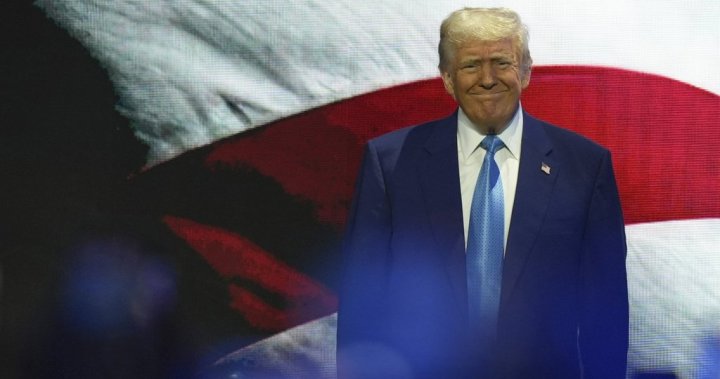Canada
‘Uncharted territory’: Will Trump’s foreign policy lead to new world order?

A New Era in U.S. Foreign Policy: Shifts and Implications
A month into Donald Trump’s second term as U.S. president, the world is witnessing a profound transformation in America’s approach to foreign policy. Since the end of World War II, the United States has been a cornerstone of the Western Alliance, but this long-standing relationship is now evolving in ways that could reshape the global order. Historians and scholars are sounding the alarm, suggesting that the world may be on the brink of a seismic shift unlike anything seen in the past 80 years. The U.S. has traditionally been a leader in international relations, but under Trump, the country appears to be adopting a more transactional and unilateralist approach, leaving many around the globe deeply concerned.
European Leaders React to a Changing Alliance
European leaders were left stunned after U.S. Vice-President JD Vance delivered a blistering speech at the Munich Security Conference. Vance asserted that a “new sheriff” was in town under Trump’s leadership, warning that internal threats to democracy—such as election cancellations and censorship—posed a greater danger to European nations than external adversaries like China and Russia. This rhetoric marked a significant departure from the U.S.’s traditional role as a steadfast ally to Europe. Vance’s comments were followed by Trump’s reversal on U.S. support for Ukraine, with the president adopting hostile rhetoric that echoed misinformation frequently spread by Russian President Vladimir Putin. This shift has left many questioning the future of the Western Alliance.
A Rift in the Western Alliance: Historians Weigh In
Historians like Andrew Gawthorpe of Leiden University describe the last few weeks as a “tremendously significant moment” with far-reaching implications. For the first time, there is a noticeable rift in the Western Alliance, a bond that has held strong since the end of World War II. Gawthorpe suggests that Trump’s vision is to collaborate with Putin to redraw the security order in Europe and beyond. This would undo the international order established by the U.S. after World War II, during which the U.S. took on a prominent role in upholding global security. Trump’s approach, Gawthorpe argues, reflects a belief that the rest of the world has taken advantage of the U.S. for decades.
The International Community Searches for a Plan B
The sudden shift in U.S. foreign policy has left scholars and governments scrambling to understand what this means for the future. John Blaxland, a professor of International Security at the Australian National University, observes that “everyone is looking for a Plan B right now.” The weakening of Western alliances has raised concerns about the stability of international institutions such as the United Nations, the International Monetary Fund, and NATO. While some experts, like Donald Heflin of Tufts University, believe these institutions are resilient enough to endure the next four years, others worry about the potential for instability and conflict.
A Weakened West: Opportunities for China and Russia
The erosion of the Western Alliance is seen as an opportunity for China to expand its global influence. Blaxland notes that China may now question the U.S.’s moral authority and commitment to international rules. With the U.S. stepping back from its leadership role, Gawthorpe predicts a world dominated by three superpowers—the United States, Russia, and China. This shift could leave smaller nations with little influence, as the rules-based international order is replaced by a system where might makes right. The result, Gawthorpe warns, could be a world of greater instability and contention.
The Road Ahead: Uncertainty and Instability
As the U.S. charts a new course in its foreign policy, the global community is bracing for the potential consequences. The weakening of Western alliances and the rise of strongman politics threaten to undermine the stability that has characterized the post-war era. While some experts remain hopeful about the resilience of international institutions, others fear that the world is heading toward a more unpredictable and contentious future. For now, the focus remains on understanding the implications of this shift and preparing for the challenges that lie ahead.











